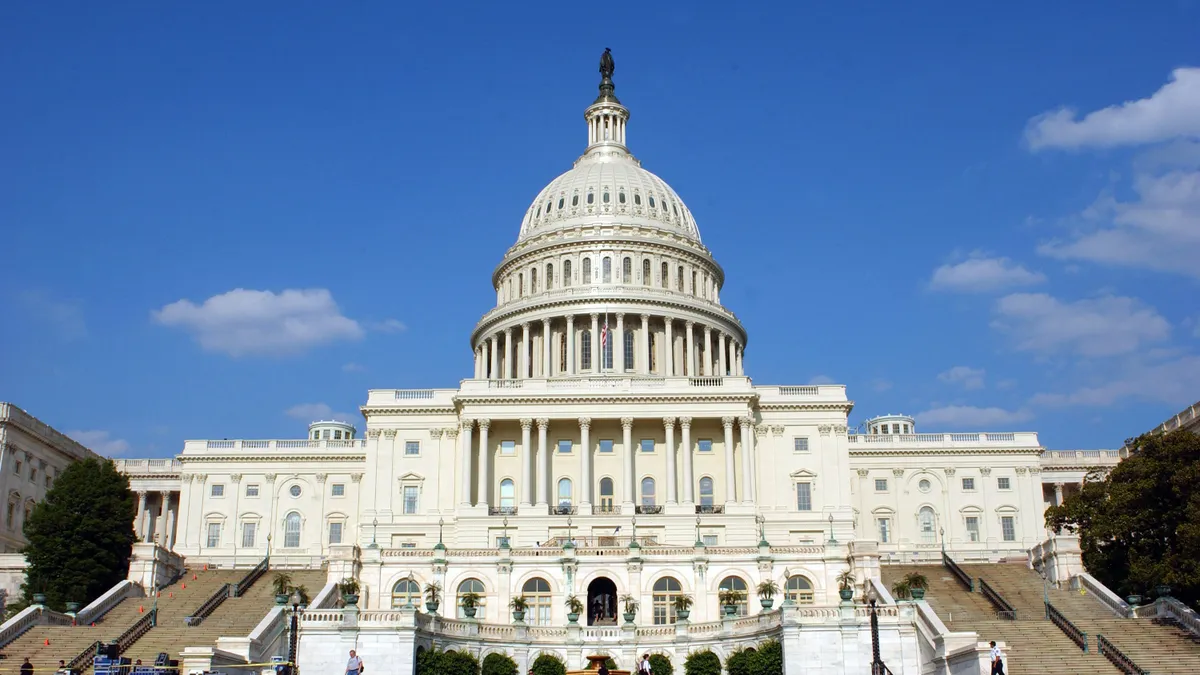Dive Brief:
-
A proposal announced by Senate Republican lawmakers would revive the child tax credit, increasing the full credit from $2,000 to $4,200 per child under age 6 and to $3,000 per child ages 6-17, according to an analysis of the legislation released Wednesday by the Center on Budget and Policy Priorities.
-
The program, however, would fall short compared to the 2021 child tax credit expansion under the American Rescue Plan, which gave the same credit for children in both low- and higher-income families. The Senate proposal would only give the full credit to families earning at least $10,000.
-
While the Senate plan would lift an estimated 2.6 million children above the poverty line, families with low and moderate incomes would have to pay for more than half the cost of the credit expansion. That would then push roughly half of the 2.6 million children that it would have lifted out of poverty below the line once more, according to the CBPP analysis.
Dive Insight:
Under the ARP expansion, which lasted only for 2021, low-income families reported using tax credit dollars to fund education-related expenses like books, supplies, tuition, after-school programs, tutoring services and transportation to school.
In July and August 2021, nearly a third of adults with children and household income below $25,000 spent their funds on education expenses, according to a CBPP analysis. In September 2021, 40% of families making below $35,000 did the same, an analysis from October 2021 released by the organization showed.
The Senate plan is a new iteration of the old program previously pushed by Democrats for expansion and currently stalled in Congress. The Republican proposal comes from Sens. Mitt Romney of Utah, Richard Burr of North Carolina and Steve Daines of Montana, signaling bipartisan support for strengthening the program for low-income families.
However, requiring families with low and moderate incomes to pay for the cost of the tax credit expansion would undo many of its benefits, according to CBPP.
"This is a serious flaw because the children denied the full credit are the very children who stand to benefit the most, in both the short and long term, from the additional income it could provide," the policy analysis said.
Recent research shows child-related tax benefits can boost outcomes for children in families with low incomes. The added cash could significantly improve children's long-term health and school performance, make it more likely they will finish high school and attend college, and boost their earnings as adults, according to an April report published in The Quarterly Journal of Economics.
"These effects show up at earlier ages in terms of improved math and reading test scores and a higher likelihood of high-school graduation," researchers wrote.






 Dive Awards
Dive Awards




